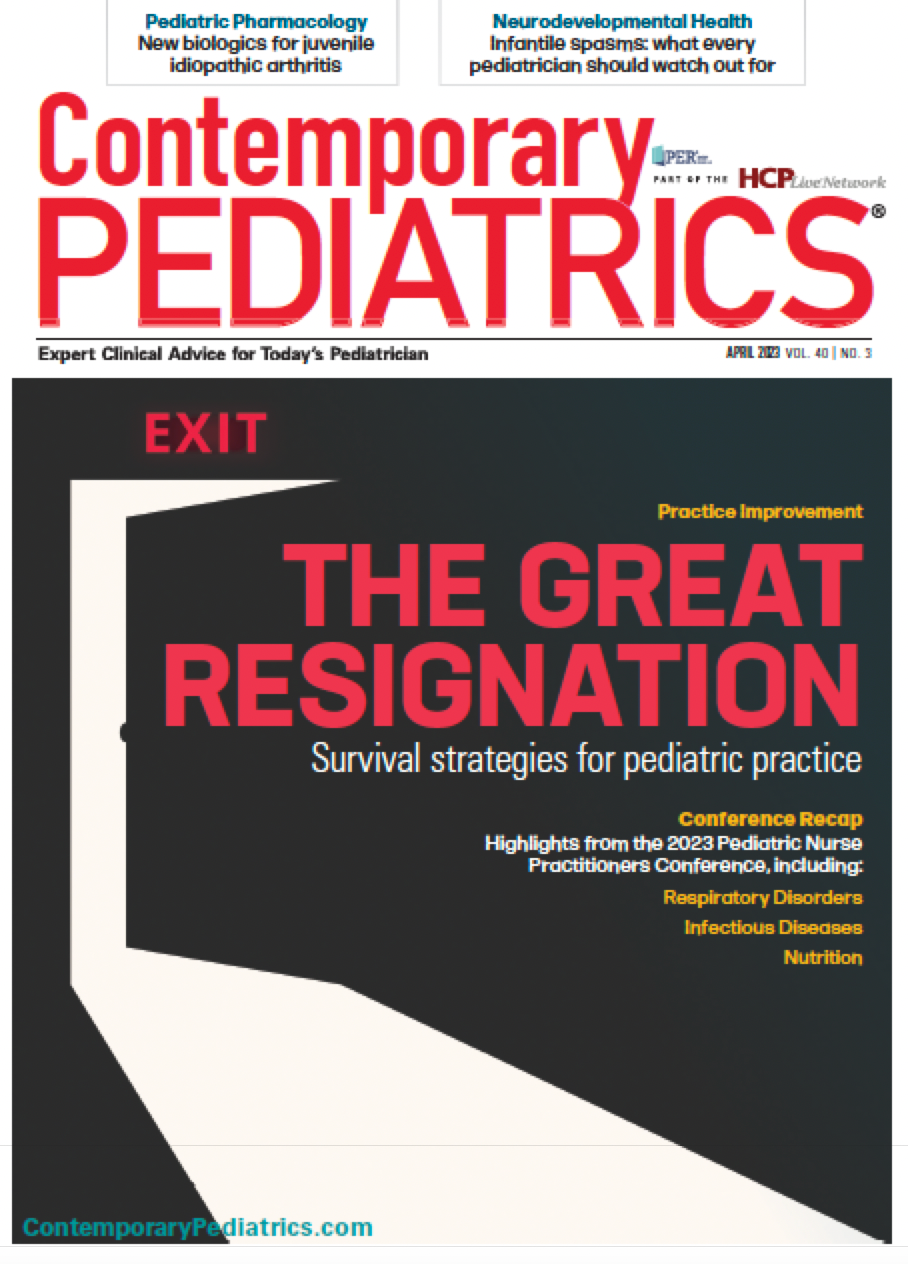Conference highlights from the National Association of Nurse Practitioners
Check out the latest news, notes, and headlines from the National Association of Pediatric Nurse Practitioners 44th National Conference on Pediatric Health Care, held March 15-18, 2023, in Orlando, Florida.
Conference | Image Credit: © SkyLine - © SkyLine - stock.adobe.com.

At the National Association of Pediatric Nurse Practitioners 44th National Conference on Pediatric Health Care, held March 15-18, 2023, in Orlando, Florida, sessions included managing viral infections in children, disordered eating in adolescents with type 1 diabetes, and much more. Here are a few of the highlights:
INFECTIOUS DISEASE
In a session on managing viral infections in pediatric patients, Teri Moser Woo, PhD, ARNP, CPNP-PC, FAANP, discussed vaccine efficacy (VE) in a number of different vaccines, including the hepatitis A vaccine (with a VE of 97% to 100% after the first dose and a VE of 100% after the second dose); the hepatitis B vaccine (a VE of 75% after the birth dose and a 95% VE in infants, children, and adolescents after the 3-dose series); and the human papillomavirus (HPV9) vaccination (97.9% effective in children aged 9 to 14 years after 2 doses; after 3 doses, the VE ranges from 93% to 100%).
For more common illnesses such as influenza, 50% to 60% is considered a “good” VE rate, Woo noted. “When examining all vaccines against influenza,” said Woo, “a VE of 51% was seen in children aged 6 months to 8 years and a VE of 34% was seen in children aged 9 to 17 years.”
For COVID-19, VE rates remain strong, with the Pfizer-BioNTech vaccine having a VE of 92% and the Moderna vaccine, a VE of 94% after 2 doses.
This is key information to have in the pediatric health care provider’s arsenal, especially when talking to caregivers who may be hesitant about having these important vaccines administered to their children.
Reference
Woo TM. Preventing and treating viral infections in children and adolescents. Presented at: National Association of Pediatric Nurse Practitioners 44th National Conference on Pediatric Health Care; March 15-18, 2023; Orlando, FL.
NUTRITION
Elizabeth Doyle, DNP, APRN, PPCNP-BC, CDCES, shared data on the increased risk of mortality among adolescents with type 1 diabetes (T1D) and disordered eating behavior (DEB), along with how parents can recognize signs of DEB in their children. Results from a large prospective study in Finland indicated a 112% increased risk for male patients to develop DEBs besides anorexia and bulimia, a 71% increased risk for female patients to develop anorexia, a 222% increased risk to develop bulimia, and a 153% increased risk to develop other DEBs.
Reasons for increased risk in patients with T1D include greater prevalence of mental health conditions, Doyle surmised. These conditions may arise from anxiety over low blood sugar, long-term diabetes complications, and a feeling of defeat when blood sugars are out of range.
Aspects of diabetes management, such as constant focus on food, dietary restrictions, eating to treat hypoglycemia, and weight gain from insulin, also may increase the risk of DEB. Patients may neglect taking insulin to cope with diabetes distress or because they have fears of hypoglycemia or anxiety about needles. They may also learn it will reduce weight. Behavioral symptoms of DEB include complimenting individuals with thin bodies, showing anxiety over weight gain, discussing how insulin affects weight, and showing low self-esteem or a negative body image. “Earlier detections and treatment will lead to better outcomes,” Doyle concluded. “It is important to know why an adolescent is neglecting insulin and provide treatment through a multidisciplinary team.”
Reference
Doyle E. Unique disordered eating behaviors in adolescents and young adults with type 1 diabetes: screening in primary care can save lives. Presented at: National Association of Pediatric Nurse Practitioners 44th National Conference on Pediatric Health Care; March 15-18, 2023; Orlando, FL.
RESPIRATORY DISORDERS
“Throughout the COVID-19 pandemic, there have been multiple disruptions to health care services,” Mary Koslap-Petraco, DNP, PPCNP-BC, CPNP, FAANP, said in her presentation on the CDC’s updated immunization schedule for children. “These include decreased administration of vaccines, leading to greater risk of vaccine-preventable diseases in children.” To help mitigate these issues, a CDC program known as Routine Immunizations on Schedule for Everyone (RISE) provides strategies to ensure vaccination. Recommendations include catching everyone up on immunizations, determining who is behind on their vaccinations, making strong vaccine recommendations, and ensuring that vaccines are easy to find and afford. New COVID-19 vaccines, new abbreviations for COVID-19 vaccine products, and revised text for vaccine injury compensation were included in the updates. Additionally, the pneumococcal vaccine was added to the catch-up schedule.
Health care providers can access the full RISE immunization schedule at https://www.cdc.gov/vaccines/partners/routine-immunizations-lets-rise.html.
To read more from the April, 2023, issue of Contemporary Pediatrics®, click here.
Reference
Koslap-Petraco M. 2023 CDC immunization update-schedule changes. Presented at: National Association of Pediatric Nurse Practitioners 44th National Conference on Pediatric Health Care; March 15-18, 2023; Orlando, FL.

Overview of biologic drugs in children and adolescents
March 10th 2025A presentation at the 46th National Association of Pediatric Nurse Practitioners (NAPNAP) conference explored the role of biologics in pediatric care, their applications in various conditions, and safety considerations for clinicians.